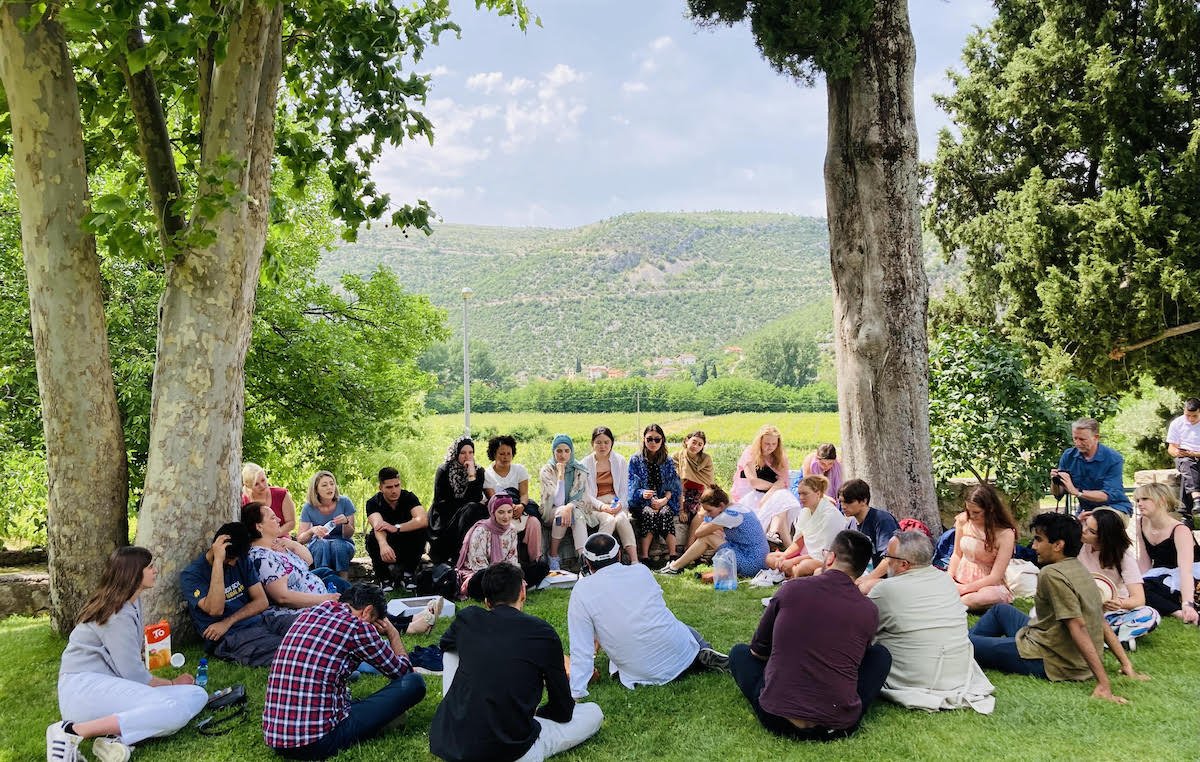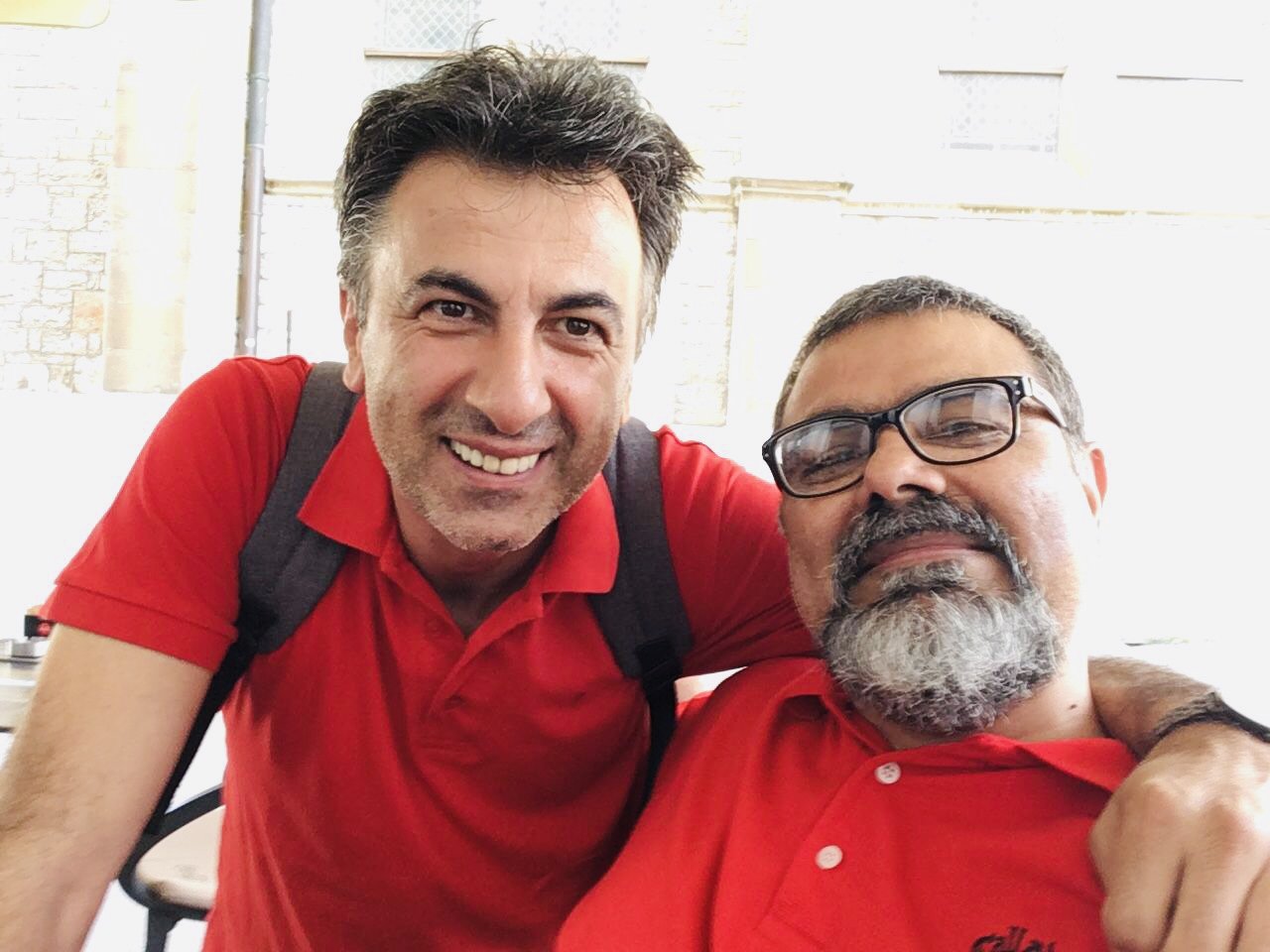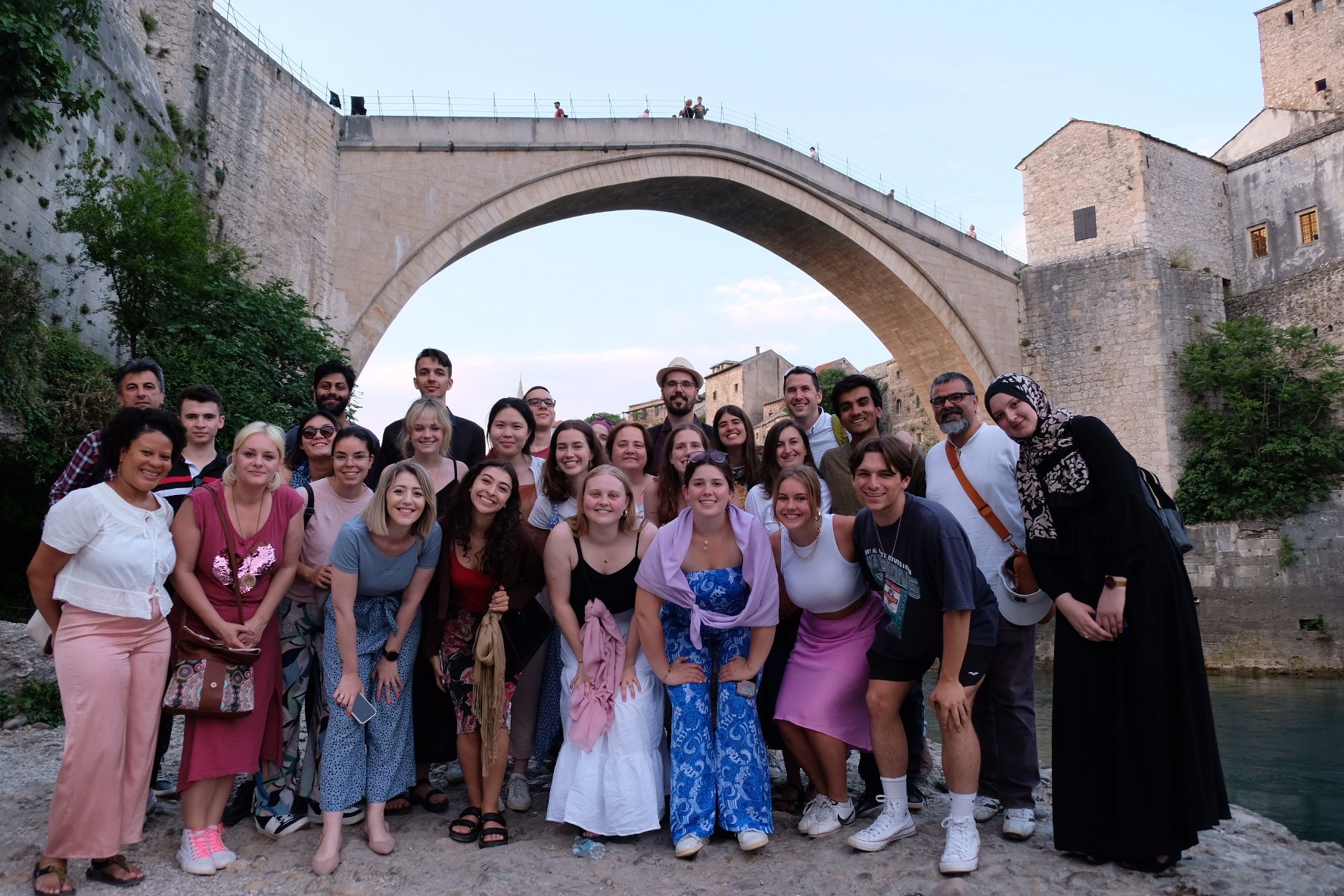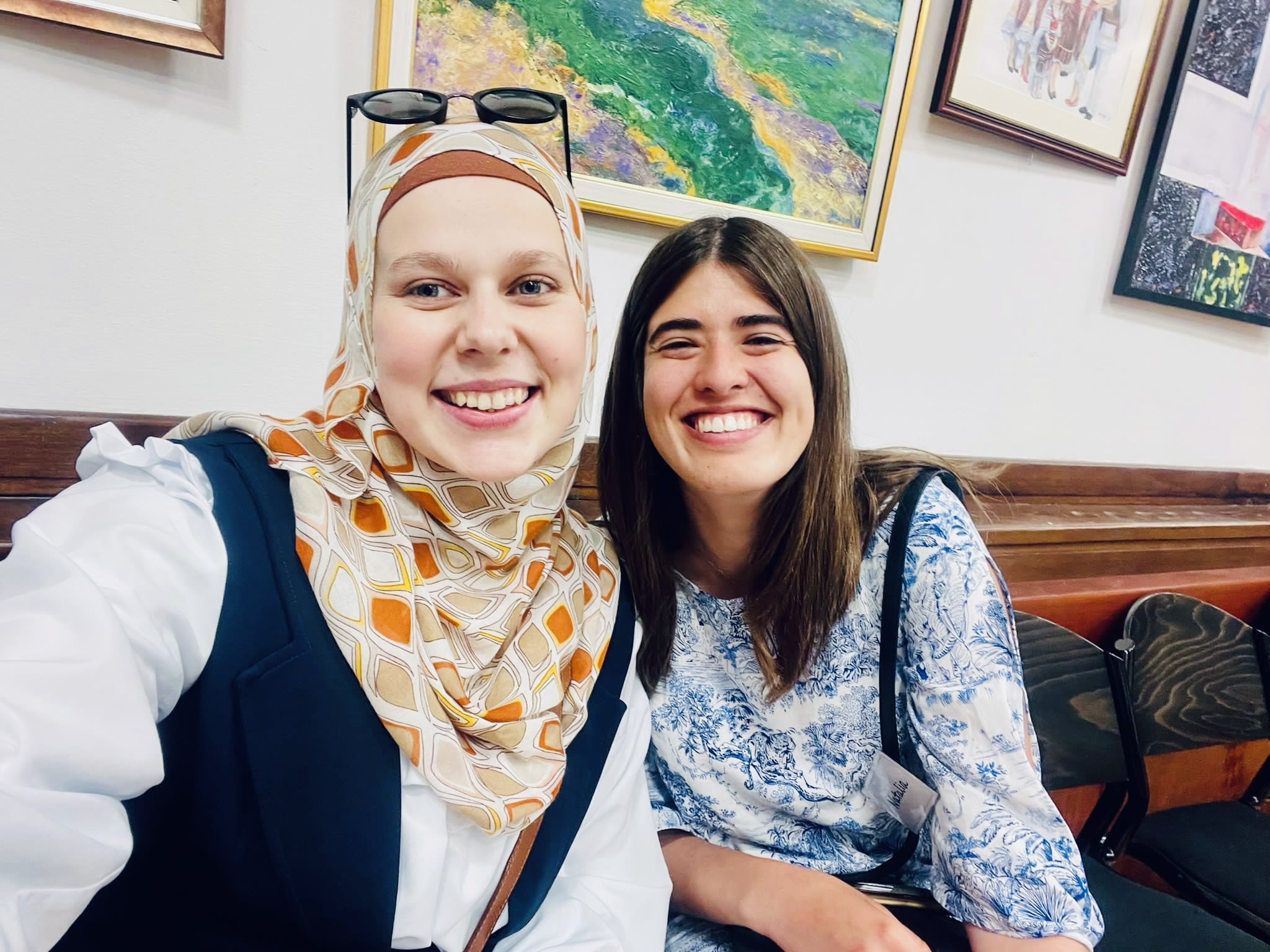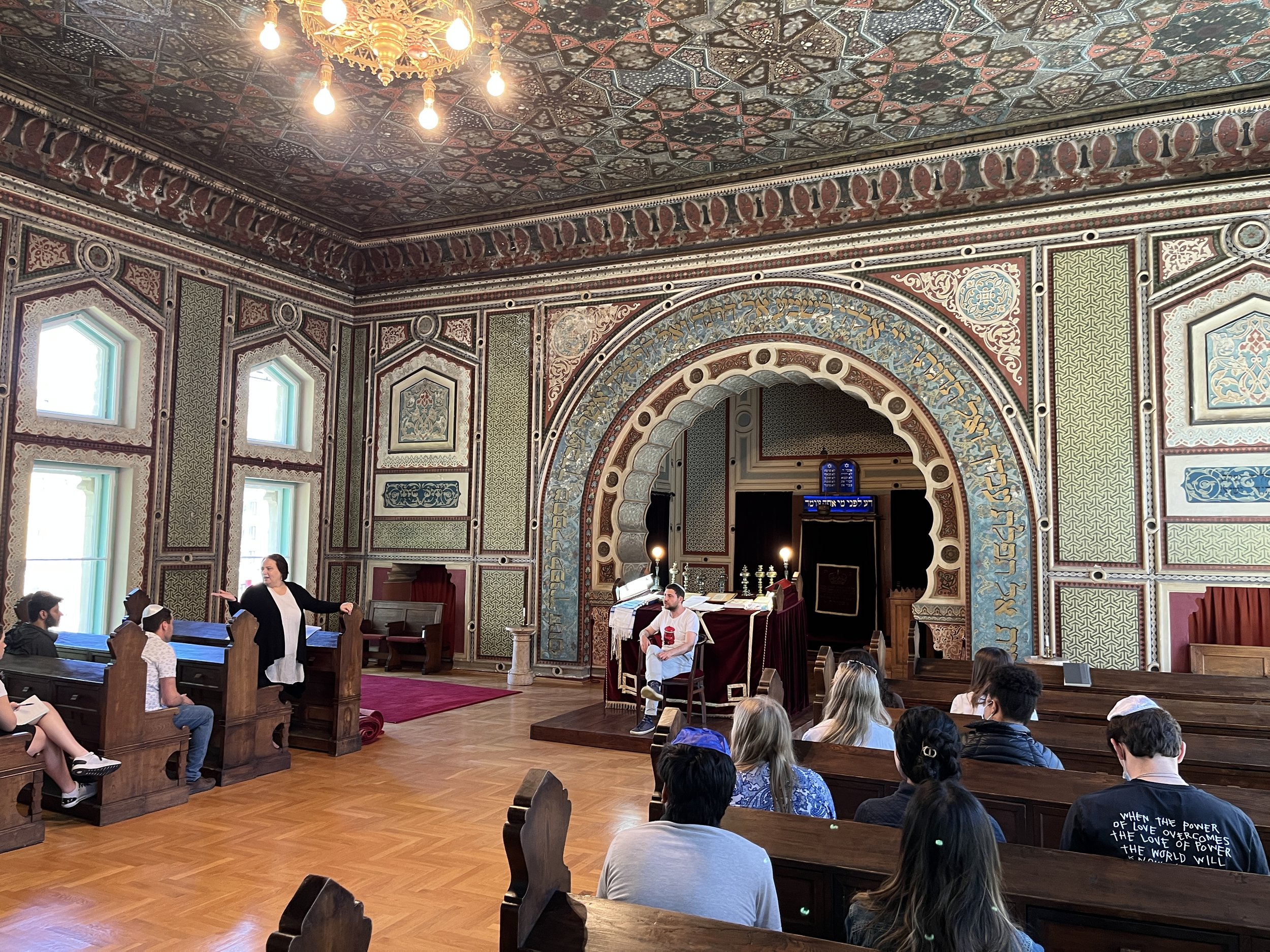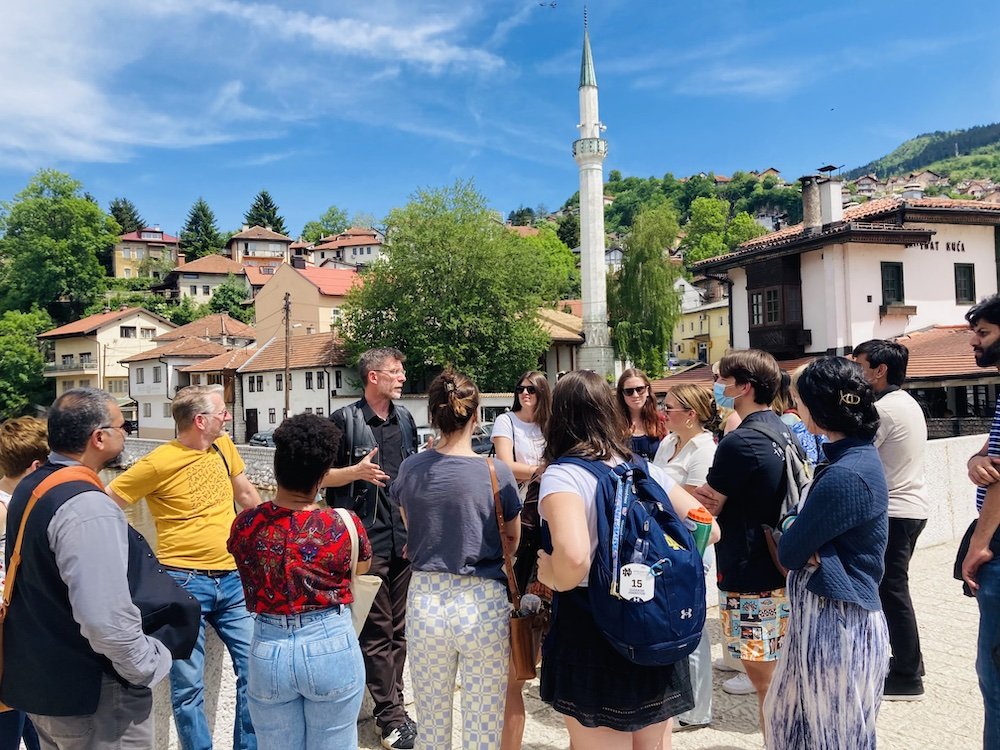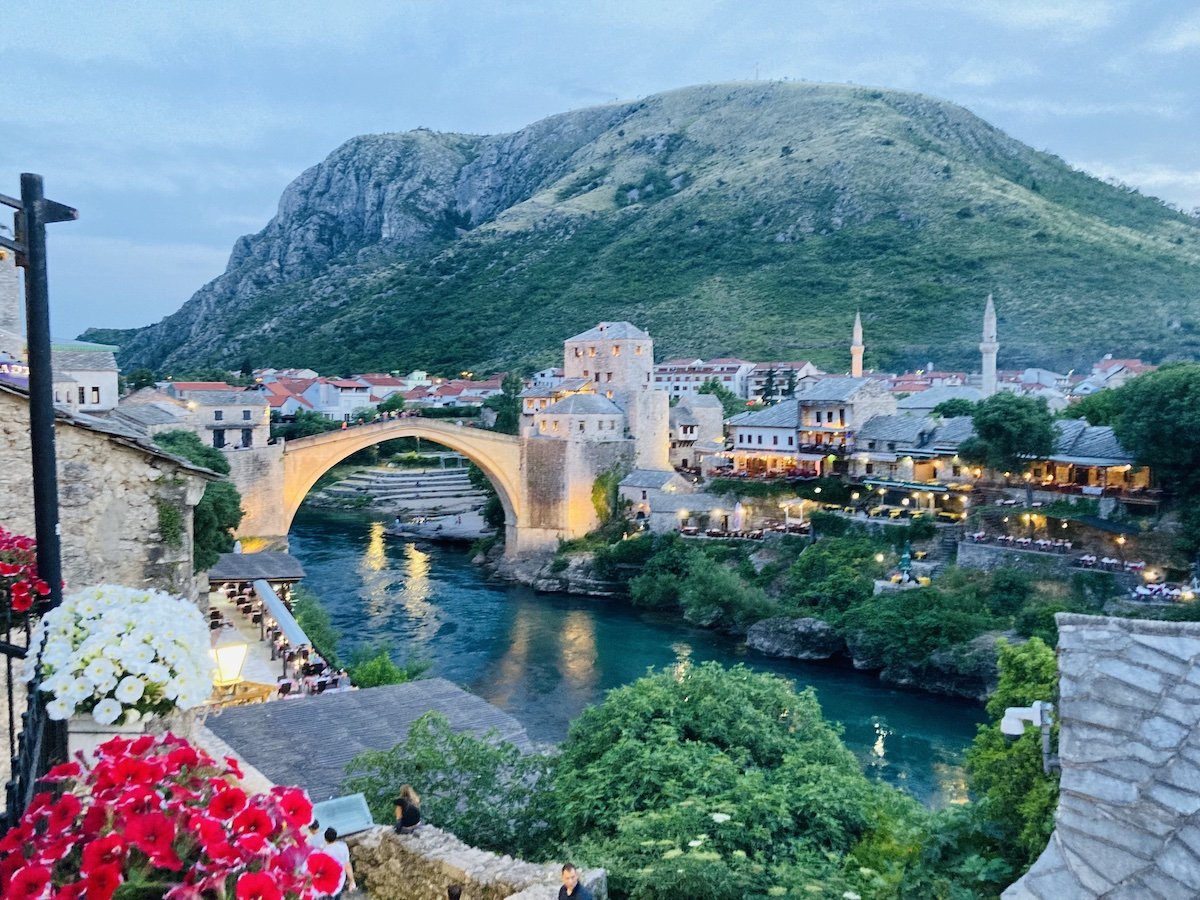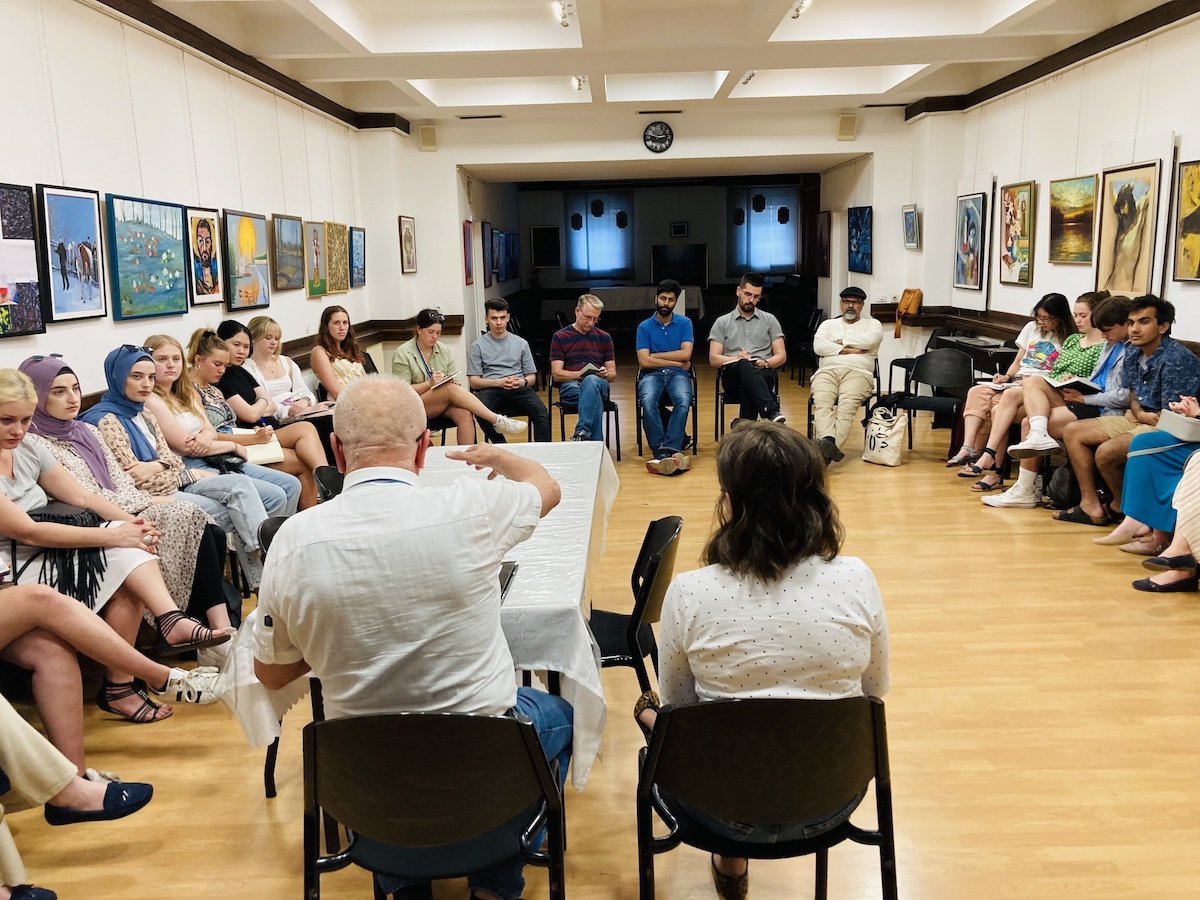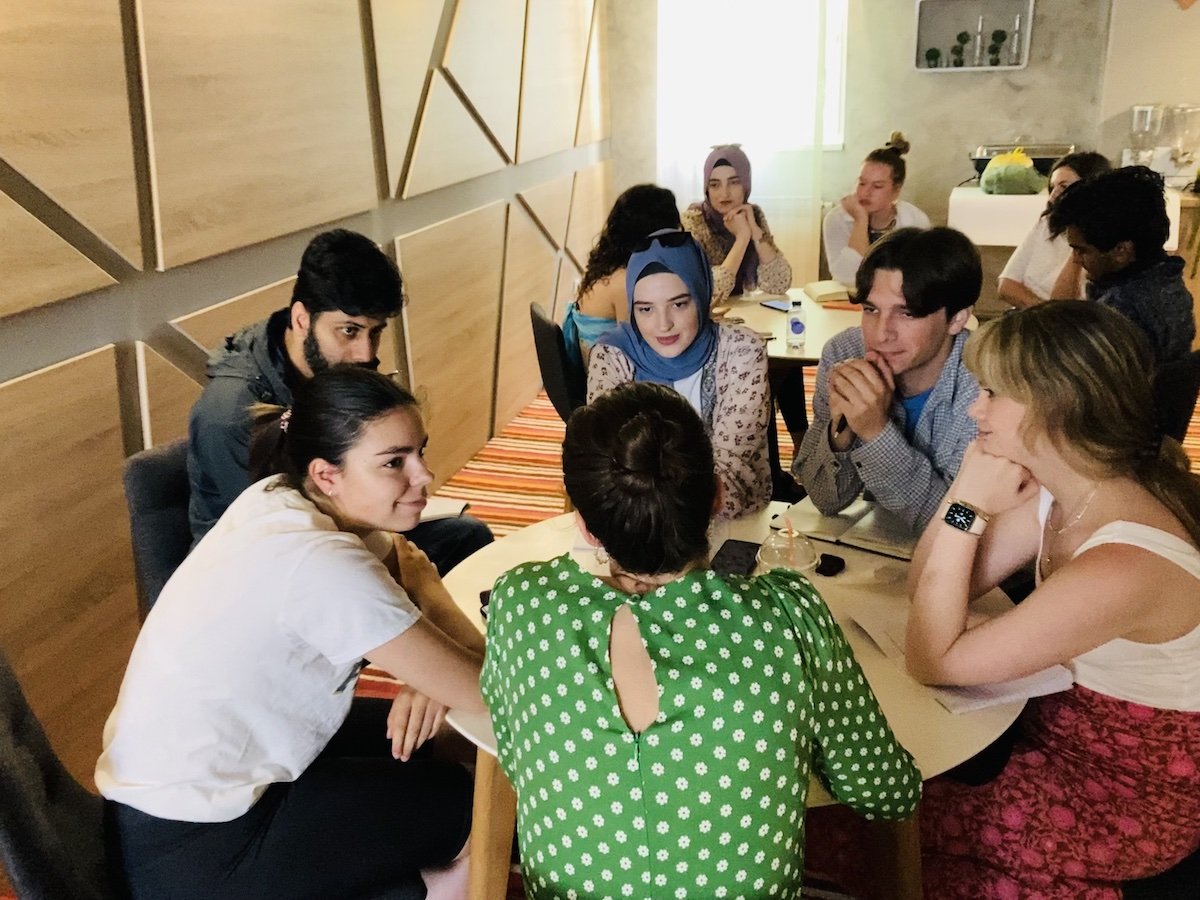Notre Dame Bosnia Trip Reflection: “Religion, Identity, and Peace at the Periphery of Europe”
by Bryan Carey
Notre Dame professor Dr. Mahan Mirza and Peace Catalyst President Martin Brooks just returned from a trip to Bosnia & Herzegovina (BiH) with 14 Notre Dame students for the Nanovic Institute for European Studies trip, Religion, Peace, and Identity at the Periphery of Europe. The Notre Dame students included undergraduate and graduate students from Trinidad and Tobago, Colombia, Nicaragua, Spain, Pakistan, India, and across the USA, from religious and nonreligious backgrounds, Catholic, Protestant, Muslim, Hindu, and agnostic. An additional 11 Bosnian university students from Sarajevo, Banja Luka, Modriča, Travnik, Zivinice, Gradačac, and Mostar joined the learning group after a few days and for the duration of the trip.
These 25 students had the chance to learn from numerous local Bosnian peacebuilders and social scientists about Bosnia and Herzegovina’s rich history of peacebuilding, competing ethno-religious narratives, trauma and cycles of conflict, and issues of identity. Several speakers commented on how diverse the group was and that it felt like they were speaking to a UN gathering. Throughout the trip, passers-by approached me and asked, with a bit of longing in their voices, “Where are you all from?” Our group’s noticeable diversity seemed to recall the (less visible) historic diversity and common life that the vast majority of Bosnians wish they could experience once again in their country.
Some highlights from the trip
Key postures for peacemaking – Numerous students reflected with me about the core principles or postures that animated the peacebuilders they met: 1) openness to examine one’s self and own group and 2) curiosity, empathy, and generosity toward others and other groups. I loved how consistently and persistently the students sought to reapply the lessons they learned to their own contexts.
Comparisons to other conflict zones – I loved the conversations I had with several Notre Dame students familiar with other conflict zones, including Kashmir. I learned a great deal, and thoughtful reflections on other conflicts provided a richness to conversations for all the Notre Dame and Bosnia students.
“We’ve done some things well!” Bosnian participants and facilitators were deeply encouraged as Notre Dame students reflected back to the Bosnians the things that BiH has done well in the aftermath of its conflict, such as memorializing sites of suffering in ways that honor and respect victims and documenting atrocities to allow for new possibilities (closure, justice, and healing). BiH provides numerous positive lessons that other conflict zones might learn from, since most conflicts in the world have no memorials or mechanisms for collective remembrance and healing.
“You don’t know us” – Dr. Ahmet Alibašić spoke about being in the Yugoslav People’s Army (JNA) in 1989 (the war hadn’t started yet), sharing that if someone told him his country would burn to the ground in 5 years, he would both laugh and take offense: “You don’t know us. We are so inter-married and mixed here that nothing like that could happen.” His comments brought questions and comments to the surface from several of the Notre Dame students – if he didn’t think civil conflict could happen in his country, how would they be able to tell when they were in that 5-year window before conflict in the US?
Reapplication to the USA – Relatedly, I was struck by the level of concern students had about violent conflict occurring in the USA. I have previously reflected about how the USA is becoming more like Bosnia, but socio-political polarization and dehumanization of political others seem only to have grown in recent months and years, and the levels of concern, anxiety, and fear for the future of the USA surprised me. For these students and a growing number of colleagues, pastor friends, and acquaintances, I hear a growing urgency to build momentum in the work of rehumanization and trust building in the USA.
Moments of tension – There were a few occasions when something was said, asserted, or claimed that was experienced as hurtful, harmful, or even ideologically violent. What do we do when someone makes statements that we deem wrong and harmful? Painting with a broad and imprecise brush, most Bosnian students shrugged off such experiences as normal and inevitable, and although they remained untriggered, they were not interested to challenge such assertions. At the same time, many Notre Dame students seemed to engage in the opposite manner, seeing it necessary for such harmful assertions to be challenged and confronted, even when they were personally triggered. For both groups, one remaining untriggered and disengaged and the other more triggered and seeking to challenge harmful narratives, questions surfaced about how we might better listen to understand in spite of and through our discomfort so that we can productively respond.
Scaling up personal transformation – Every student participant raved about how transformational this experience was for them. As an organizer and facilitator, this feedback is always encouraging to hear, but we’re also considering how we can more effectively scale up these individual moments of transformation to contribute to wider social change. The simple fact that Dr. Mahan Mirza, a key person representing an incredible institution (The University of Notre Dame), came with an incredible group of students (who hold all sorts of informal influence and the potential for future formal influence) opened up the opportunity for us to connect with BiH institutions and a variety of BiH students and others with formal and informal influence. We’re looking forward to ways we can expand that blossoming network to contribute to wider social impact.
Including staff from a BiH educational organization – A local educational organization had two staff join this experience. Not only did they love it personally, but as more “key people,” they are now interested in connecting their students with future pilgrimage experiences here in BiH: “We want as many of our students to join this program every year as possible.” Peace Catalyst and local partners are now also included in the planning for this organization’s fall seminar to focus on peacebuilding themes with their 50-60 students.
Connection to The Faculty of Islamic Studies (FIN) – Not only did Dr. Ahmet Alibašić (Vice Dean for Academic Affairs) speak to our student group in the FIN auditorium, but several FIN professors shared about the opportunity for FIN undergraduate and graduate students to apply and join the experience. Quite a few students applied, and we were able to accept six, which is a great step towards further partnership. Many FIN students do not often have the chance to interact with students from other religious backgrounds, especially conversations that are about difficult themes and more reflective, vulnerable, and self-interrogating. All of the FIN students reported how deeply impactful this experience was, the importance of this type of experience for their faculty, and their desire to join future programs.
It’s difficult for individuals to self-interrogate, connect with “the other,” forgive, heal from trauma, or just reach across the aisle. It’s nearly impossible for institutions to do so. The only possibility to affect larger institutions is for courageous individuals to lead such efforts from within those institutions, something which is incredibly needed in both BiH and the USA. As we work to include incredible students and other key people and institutions, we are excited to provide courageous participants the opportunity to cross divisions, self-interrogate, and lead in ways that “unstick” polarized societies.
WANT IN? COME ON OUR NEXT BOSNIA TRIP, SEPTEMBER 1-10, 2022! OPEN TO ALL AGES. APPLICATION DEADLINE IS JUNE 30TH.

